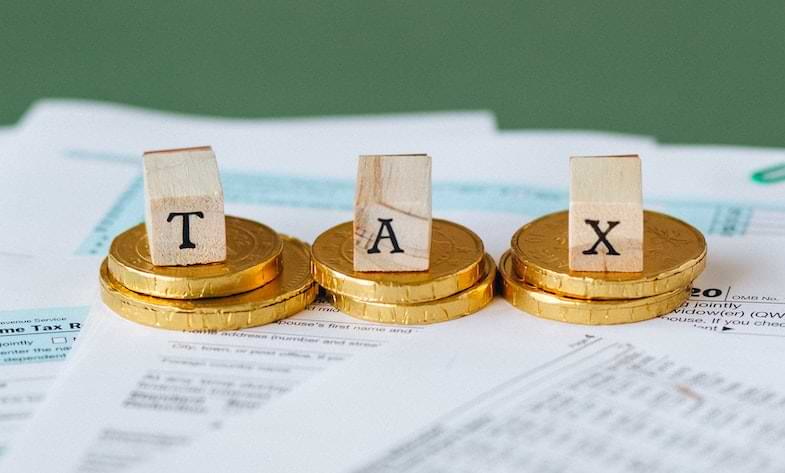Published on: 23/01/2023
The hemp tax is coming: here’s what’s changing for legal cannabis dealers
In recent months there has been talk of a possible taxation on cannabis: if so, what would change for traders in the sector?
In this article we will try to offer a general and panoramic analysis of the situation, focusing on the proposal put forward by the 5 Star Movement in 2019.
Enjoy the reading!


Tax on legal cannabis: the causes of this decision
Game changer for cannabis traders. Following the meeting for the budget by the Senate, it was decided to implement a small integration of the law 242 of 2016 regarding the sale of Cannabis Sativa L.
In particular, it has been stated that a plant with a THC content of no more than 0.5% can no longer be considered narcotic.
But why is there talk of integrating an already existing law?
For two simple reasons: the first, for a desire to fill an educational gap regarding the sale of cannabis (law 242 never spoke about it specifically). The second reason concerns the desire to counter a recent ruling by the United Sections of the Cassation according to which the discriminating factor was not THC as the active ingredient of cannabis, but rather on its psychoactive effect and, therefore, on its ability to cause addiction.
In other words, no matter how much THC was in cannabis, it was a priori problem due to its nature.
But with the integration of a new mini excise tax, cannabis could now be sold freely, as long as the level of this cannabinoid does not exceed, as we have said, 0.5%.
Read also: Hemp in the artistic field: a combination with ancient roots
Hemp tax: what changes at the legislative level
The legislation was introduced in the Senate commission but, in order to be approved, it must receive confirmation from the assembly of Palazzo Madama.
But having said that, what would substantially change at the legislative level?
Briefly, some changes would be made:
- to the Consolidated Act of Excises (in particular to the legislative decree number 504 of 26 October 1995);
- to law number 242 of 2016;
- to the Consolidated Law on Narcotic Drugs (Presidential Decree 309 of 1990).
But let’s go in order.
We have said that the proposal provides for an integration of a mini excise duty on hemp biomass: in particular, a tax corresponding to twelve euros per tonne will be applied based on the percentage of cannabidiol present. This tax will have to be paid by both cannabis producers and hemp importers from other European Union countries.
As far as the 2016 law is concerned, however, we have already anticipated earlier that an integration has taken place aimed at regulating the sale of cannabis products, which had not yet been mentioned in the text of the law. To be more precise, the legislation will be applied:
- the sale of hemp derivatives;
- to the cultivation of the plant;
- to the transformation of the entire plant (flowers, roots, leaves, resins, etc.).
Furthermore, an integration is made in the third paragraph of the same law, which establishes that the hemp plant can be used for the creation of cannabis products as long as the THC content does not exceed 0.5%.
This led to a consequent modification that D.P.R. 309/90 regarding the table in which psychotropic substances are listed – such as THC – and the protection of cannabidiol (CBD), a non-psychoactive substance widely used for therapeutic purposes.


Cannabis taxation: the intent is not to leave any training gap
What is the objective of this maneuver proposed in 2019 in Italy by the 5 Star Movement?
The then Senator Francesco Mollame had underlined how this legislation was aimed at starting a “virtuous path of green economy” but also to give “a boost to the economy of the sector”, finally giving clear and concrete laws to those who already invest in the world of cannabis, despite doubts, uncertainties and sudden changes.
In essence, the party’s goal was to fill the regulatory gap of law 242 of 2016, so as not to leave room for any interpretation, not to mention the possibility of generating new revenues in the state treasury.
Exactly, that’s right.
According to the senator’s data, there was talk of at least 10 million euros in receipts, even if he believes that we can speak of a real boom in the cannabis sector in Italy. It is no coincidence, in fact, that today there are more than ten thousand employees for three thousand companies operating in the sector which records strong growth every year.
Read also: Legalization of cannabis: the Government of Malta has decided to proceed
Conclusions
This article was intended to illustrate the situation regarding the possible new hemp tax. Cannabis taxation would appear to be a way to regulate the sale of cannabis, protecting operators in the sector and, at the same time, generating a substantial income in the state coffers.
To date, the situation is still uncertain, so it will be necessary to wait for further developments in this regard.
See you soon!









